X Ray Spex - Interview with Poly Styrene Part 1
by John Clarkson
published: 24 / 7 / 2005
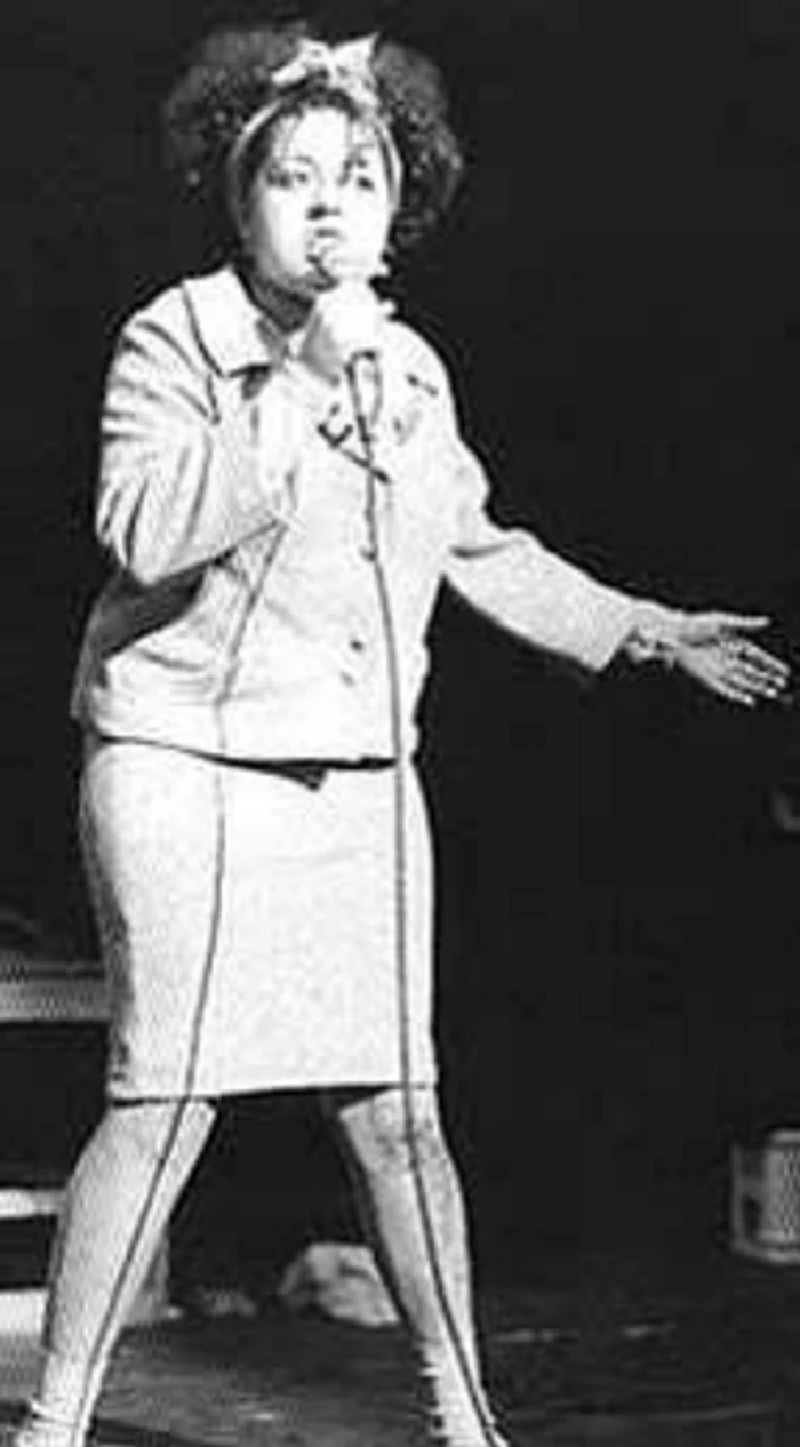
intro
In the first part of a three part interview Poly Styrene, the former frontwoman with influential 70's punk act X Ray Spex, chats to John Clarkson about her early years in music and the release of the group's first classic single 'Oh Bondage Up Yours'
There have been many stories and rumours published about Poly Styrene, the former front woman with X Ray Spex, since her first disappearance from public life in 1980. It has been written that she has gone missing in the Himalayas. It has been said too that she has gone mad, and also that, having found God, she has tried to have her one-time band’s classic debut album, ‘Germ Free Adolescents’, blacklisted. Her affiliation with the Hare Krishna movement since the early 80’s has made the former punk icon, like anyone not prepared to follow a conventional path, a perhaps easy target for ridicule. Pennyblackmusic, however, found her alive, sane and living quietly near Hastings in the small Sussex seaside town of St Leonard’s-on-Sea, where she was preparing a fruit and yoghurt smoothie before embarking on her interview with us. Born Marianne Elliott, the daughter of a Somalilander father and an English mother, in London in 1957, Styrene ran away from home at the age of 15 and spent two years on the hippy trail before returning to London where she promptly started a solo career. A single, ‘Silly Billy’, a tongue-in-cheek pop reggae number, was released under her real name on disco diva Donna Summer’s own label GTO Records in early 1976. On July 3rd that year, the day of her 18th birthday, Elliott attended a Sex Pistols gig on Hastings pier and instantly converted to punk. Changing her name to Poly Styrene, she formed X Ray Spex later on that year with Jak Airport (born Jack Stafford ; guitar) ; Paul Dean (bass) ; BP Hurding (drums) and Lora Logic (born Susan Whitby ; saxophone, replaced by Rudi Thompson in 1977). X Ray Spex proved instantly different from other bands of the genre. While other bands of the era concentrated on anarchy and chaos, Styrene’s unique lyrics concerned themselves with consumerism, green issues and the disposable society. The band’s addition of a saxophonist gave them a further unconventionality and freshness. They signed first of all to Virgin with whom they released their debut single, ‘Oh Bondage Up Yours’, in 1977, before switching to EMI with whom they recorded another four singles, ‘The Day The World Turned Day Glo’, ‘Identity’, ‘Germ Free Adolescents’ (all 1978) and ‘Highly Inflammable’ (1979). The ‘Germ Free Adolescents’ album came out in November 1978. The group split up, citing creative differences, in mid 1979. Styrene released an ambient and misunderstood solo album ‘Translucence’ in 1980 before disappearing later that year from public view. She spent much of the next 15 years working in the Krishna movement, returning briefly to the music scene with an EP, ‘Gods and Goddesses’, a Krishna record in 1986, and then again to reform X Ray Spex for a one off concert at Brixton Academy in 1991. In 1996 she reformed X Ray Spex once again with Dean and Logic and they put out a second album, ‘Consumer Conscious’, which found Styrene in sound returning to her punk roots. A tour to promote the album, however, found Dean and Logic performing without Styrene and with a replacement singer. Poly Styrene’s latest record, ‘Flower Aeroplane’, a Krishna solo album, which features five tracks from the long deleted ‘Translucence’ album and eight new songs, is her first new release since ‘Consumer Conscious’. It was released in June on her own X Ray Spex label. In an extensive interview, which will be run in three parts, one this month, and two to follow, Poly Styrene talked frankly and openly about her punk past, the Krishna movement, her thirty year musical history and the future. PB : You released a self-penned single in the summer of 1976 called ‘Silly Billy’ under your own name. When did you first actually start writing music ? PS : I have been writing songs since I was a child at school. I started writing little protest songs in the playground about the dinner ladies and things like that (Laughs). I sung at school in the assembly and I was in the choir, and then I started singing and writing pop songs when I was probably about 8 or 9. PB : How did you manage to get that single released ? You were very young at the time. PS I was 17, maybe 18. My manager, who was also my boyfriend, used to take me around record company offices and some of them liked me enough to offer me studio time. After work I would go into the studio and record these songs. Most of them were never released, but that one came out on GTO. I would imagine that one was released, while others weren’t, because GTO considered it a novelty record and thought that it had commercial appeal. I never got paid for any of those sessions. As I was working at the time, I lost sight of things, and, as I was to find out later, my manager was pocketing all the cash as well (Laughs). I got a bit bored with being a solo artist as I was working with all these session musicians who were a lot older than me and who I had little in common with. I wanted to have a band, and that is really why I formed X Ray Spex. I was writing and recording, writing and recording, writing and recording, and then I got a bit fed up with it because nothing was really happening, so I thought I’ll put a band together. I put X Ray Spex together after I saw the Sex Pistols for the first time. PB : What was the appeal to you of punk ? Much of punk was obviously very nihilistic and destructive, yet X Ray Spex always seemed to be a very positive force, encouraging fans to think about society and ways of improving it rather than destroying it. PS : I am quite a positive sort of person. I am not on a down negative. I don’t have that kind of personality trait. I like to always try to build rather than to destroy. Destroy was one of the key words in punk, wasn’t it ? I think that what I really liked about punk was the fact that it was my age group that was doing something. I liked that far more than the philosophy. They were doing something without record company backing, and I really liked that. It didn’t mean that I had to necessarily agree with everything that they did and their message. I wanted to do what I wanted to do, and that had nothing to do necessarily with what these people were saying. It was just that I was around about the same time. I was in the same age group, younger even than they were, and I realised that they were doing something and I thought that I could do something and I didn’t necessarily have to have a record deal first. PB : You ran away from home at the age of 15 and spent two years travelling before you returned to London when you were 17. What did you do during those two years ? Did you just spend them in Britain or did you go abroad ? PS : No, I just spent them in England. I ran away with two other friends and they eventually went to Ireland, but I didn’t even go as far as Ireland (laughs). I just got as far as Somerset and Bath. I spent one year in Bath and then another year travelling from one pop festival to the next. First of all there was the Trentishoe Earth Fair in Devon and then after that there was the Windsor Free Pop Festival, and then there was the Bath Arts Festival. There were a whole crowd of us, travelling from one pop festival to the next. In between we crashed at one hippy pad after another. PB : Was this where the green nature of your ideology first developed ? PS :Yes, it came really from the folks at Trentishoe. I first learnt about the environment and recycling there. After that we lived too on ferns in the countryside while it was summer. We obviously couldn’t do it in the winter, but during the summer we would do things like fry battered ferns and make tea from dandelion leaves and stinging nettles. We went totally back to nature and bathed in streams and things like that. I first got the idea before I left school. I told my cookery teacher that that was what I was going to do, and she said “Oh, a friend of mine was going to do that and you’ll find it very hard and you won’t be able to do it”(Laughs). I was determined to do it because I had read a book at school, a butch sort of thing. It was about a young Native American boy who to become a man had had to go off into the woods by himself and survive and that was what had made me want to do that, except I was a girl so it was a little bit more risqué (Laughs). PB : You chose the name of Poly Styrene for yourself, yet you were always very against the plastic society. Why did you choose that name ? PS : I didn’t actually choose that name. X Ray Spex was my name, but Poly Styrene wasn’t. I was writing about plastic and things like that in my songs and one day my manager said to me “I’ve got a name for you” and it was Poly Styrene. It was very funny, because he could also call me Polly Put the Kettle On for a joke, so that’s where the name came from. I thought “Well, I’ll have it” and then I started using it for my fashion label really, not for my personal name, but my manager kept calling me that and eventually I just embraced it and started using it. X Ray Spex was my name, but Poly Styrene wasn’t. It was a tongue-in-cheek name, a joke, but I did quite like it when he came up with it. PB : A lot of people in music who assume aliases feel that there is a big difference between their pseudonym and their real name. Iggy Pop, for example, has always made it clear that there is a real distinction between Iggy Pop and James Osterberg. Is there a difference between Poly Styrene and Marianne Eliott ? PS : There was when I performing as Poly Styrene and using that moniker as a persona and a stage name. I now see Poly Styrene as a trademark and I just use it because people know it. I feel more myself in Poly Styrene now. I am not trying to create a caricature like I did when I first started. PB : You had started running your own Poly Styrene fashion boutique in King’s Road by the time X Ray Spex began. What kind of clothes were you selling ? PS : I sold mostly my own stuff. There were a lot of accessories. Friends would help out, but I used to do all the jewellery myself. Some of it was very silly. I would go to the DIY store and buy sink chain, which doesn't tarnish and is quite shiny and chrome plated. I would also buy plastic tubing and then I would run the sink through the plastic tubing, and turn them into chokers and ankle and arm bracelets. It was funny, because I had people like Marianne Faithfull, Amanda Donohoe and Paula Yates coming in and buying them. I am sure that they didn’t know that I had bought it at the DIY store. I also used to go and buy these silly rain macs that you would find in Arding and Hobbs for about a pound, and I would diamente them and then sell them for about ten or twenty quid. One of my friends, Sophie Horgan, was at fashion school. I designed some things and she made them for me. There was an eggs and bacon dress, which we did just for a laugh. We went down to Peter Jones and I bought some vinyl table cloth fabric. I then asked Sopha to applique an eggs and bacon design like a working man’s greasy fry up on it. I thought that it would be funny to put it on a dress, especially as I was a vegetarian and I didn’t eat stuff like that. It was just mad, wacky stuff. It did look nice though. It did have some couture and some class too. PB : How long did the boutique last for ? PS : Not long. As soon as the band took off I had to close it down. It really turned into more of a hang out joint. It didn’t really break even, and, as the band was happening, I had to sacrifice one or the other. PB : There was all these other famous punk clothes’ shops in the King’s Road area at the time as well such as Seditionaries and Acme Attractions. Did you try to keep an eye on what was happening there ? PS : I did go to them, but being sort of egotistical in terms of my personality I wanted to be different (Laughs). I didn’t want to copy them. My whole thing and my generation’s thing was all about being original. I certainly went though to see what they were doing as well. PB : You formed the band in late ’76 and you very quickly ended up with a residency in the Man in the Moon pub, which was also in the King’s Road. How long did that residency last ? PS : Six months. Maybe a year. PB : You were the main act there. Is it true that you gave bands such as Adam and the Ants and the Tourists their first breaks by giving them support slots ? PS : I did give a lot of bands their first breaks. They used to come into the shop when I was still working in the boutique. They would talk to me and invite me to their rehearsals and then I would let them play at the Man in the Moon. Adam and Ants and the Tourists were two of the acts. The Rezillos were another band. They played one of their first London shows with us. PB : You won your first record deal with Virgin very quickly after just playing a few gigs. You had a single deal with them and released ‘Oh Bondage Up Yours’. Do you think that was in hindsight a good thing or do you think it happened too quickly ? PS : I think that it was good thing. I wish that we had stuck with Virgin in a way. I don’t know what really happened. Richard Branson invited us all on to his boat, the whole band, our manager and my friend Mary who was my bodyguard, and his wife cooked for us. They were really nice and we thought we were going to be with Virgin permanently, but our manager worked it so that we only did a one off deal. He came to us and told us that Richard Branson was a megalomaniac and that EMI were offering us more money and a better deal. They weren’t really offering us more money, but he said that they were offering better percentages, so we went with EMI. I don’t really think that it was the best news because it wasn’t as if they took us up afterwards. We just had a one off album with them, but that might have just been down to our manager. He might have worked it like that. We didn’t have a proper contract with them. As it was only a one off deal he could have manipulated the situation so that he was making all the money. We were only 18 and, if you’re that young and have a manager, you don’t really know what they are doing behind the scenes. PB : You went the opposite way to the Sex Pistols. They signed to EMI, got themselves kicked off there, and signed to Virgin. You signed to Virgin and then went to EMI. You were a friend of John Lydon. Was he aware of the irony of that ? PS : I don’t know if I would say that we were friends. I hung out with him a little bit around at his place. I suppose I could say he was a friend of a sort. He didn’t like it at all when we went with EMI. He was jealous. It was weird. He would say “At least you’re with a proper label.” He wasn’t very happy about it. Some of the Sex Pistols camp were very rude about Richard Branson. They were like “He is a loser and a hippy, He is not going to do anything. Virgin is just a small label”, but he proved them all wrong. PB : You spent quite a lot of time at Lydon’s house in Gunter Grove in Fulham. PS : I went there maybe four or five times. PB : It is often portrayed as a pretty dark place. PS : It was a bit (Laughs). John was a nice guy. He was a vegetarian. He was reading Bhagavad Gita. It was a really spiritual book. Chrissie Hynde taught him to play the guitar and gave him Bhagavad Gita, so half of him was in the light, but the other of him I think was rebelling against his Catholic upbringing and was much darker. He had these crosses hanging upside down in Gunter Grove. It wasn’t like he didn’t have a cross. He had to have one, but then he had to put it upside down. He would talk to you about ghosts, try and sweeten you up and then tell you there were ghosts to scare you. He would say “Did you see that ?” and then draw the cross over your head. He wasn’t really a bad guy. I think he was just trying to pretend to be bad. I think he wanted to be dark and spooky, and was trying to live up to an image. He would complain that he couldn’t go out and that people hated him and he would blame the media, but at the same time he also loved it. I think that he was pretty confused. He was very young again. I think that when I was 19 he was about 21 or 22. I don’t think he knew totally what he was involved with. He had Malcolm McLaren playing everything all up and he had to go along with it. I met his Mum once. She was a really nice lady. Half of him was trying to be this bad punk guy and was playing up to this image that had been created for him, and then the other half had his Mum, his nice little Mum, and was trying to a be Mummy’s boy. I think he didn’t know where he was. He had his foot in both worlds. PB : ‘Oh Bondage Up Yours’ was one of the early punk slogans. It was a phrase that was bandied about a lot. What was that song about ? PS : It is often seen to be really kinky, but it is not. It was used on the ‘Sid and Nancy’ soundtrack, and I understand it was used in a kinky way on that. I didn’t bother to go and see it because I was living in the temple at the time and it was the last thing on my mind what other people were doing with my music. I didn’t give permission for it. My manager would have done that, or maybe Virgin. I personally wasn’t even asked. It was a really big song in Dublin and Ireland. It was considered almost like an Irish rebel song over there, but it is not terribly political, because it has other bondage imagery as well about being caught up in consumerism and also about being in a chain gang. The line “Buy me, tie me, chain me to the wall” was inspired by the suffragettes and was also about slavery. There was lots of that kind of imagery in there. I had left school a couple of years before and learnt a lot about suffragettes and slavery there. It had been floating around in my subconscious since then.
Band Links:-
https://en.wikipedia.org/wiki/X-Ray_SpexPicture Gallery:-
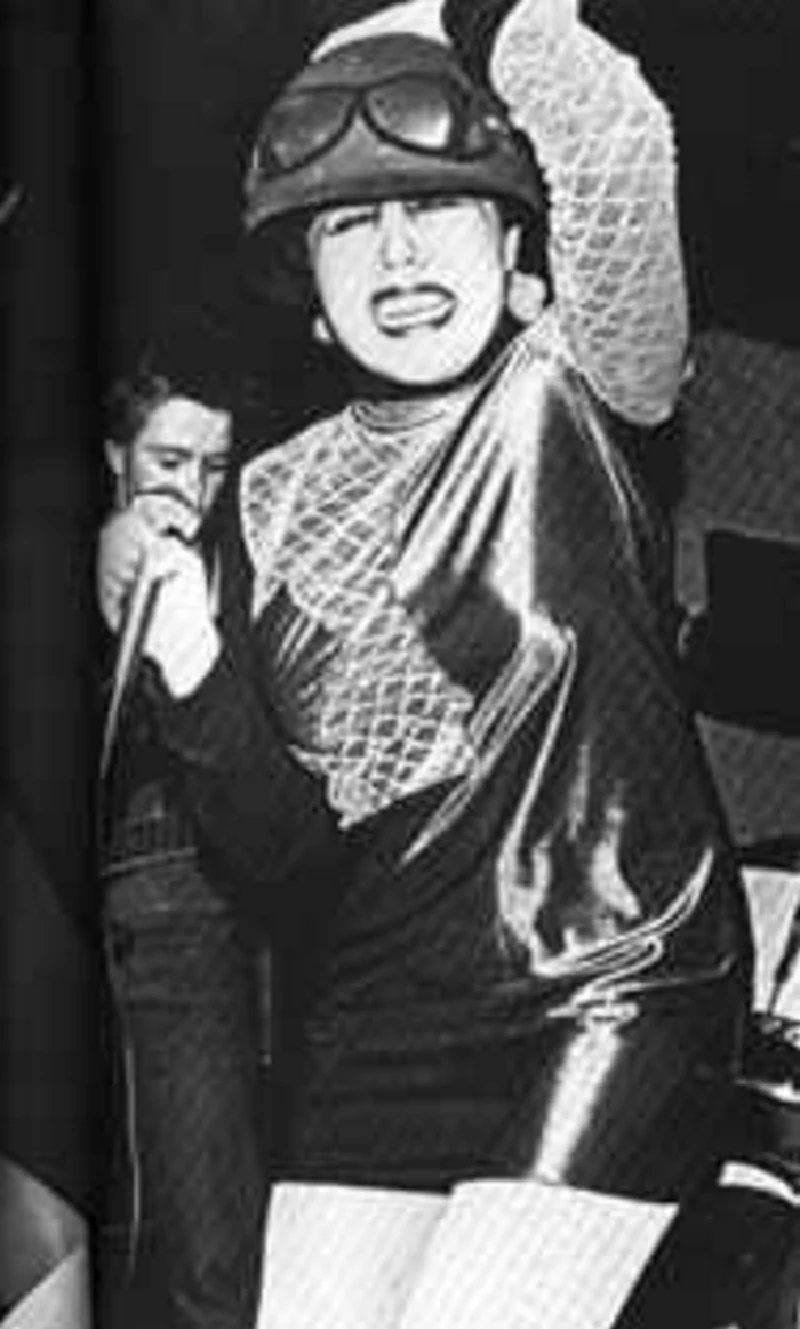
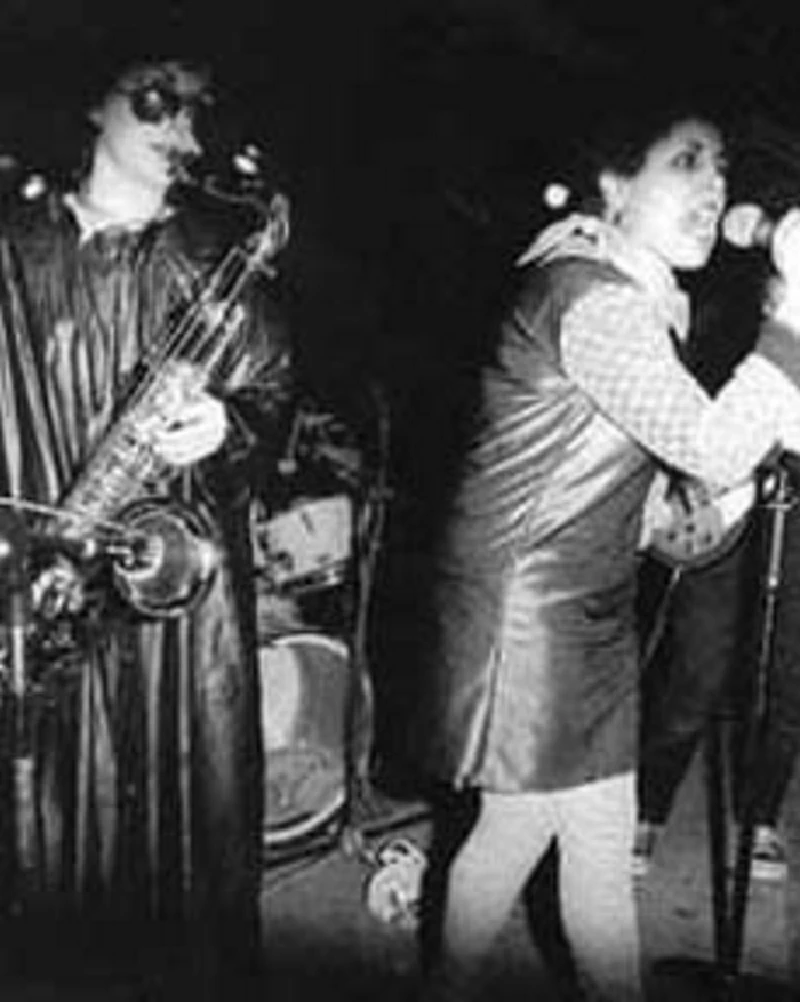
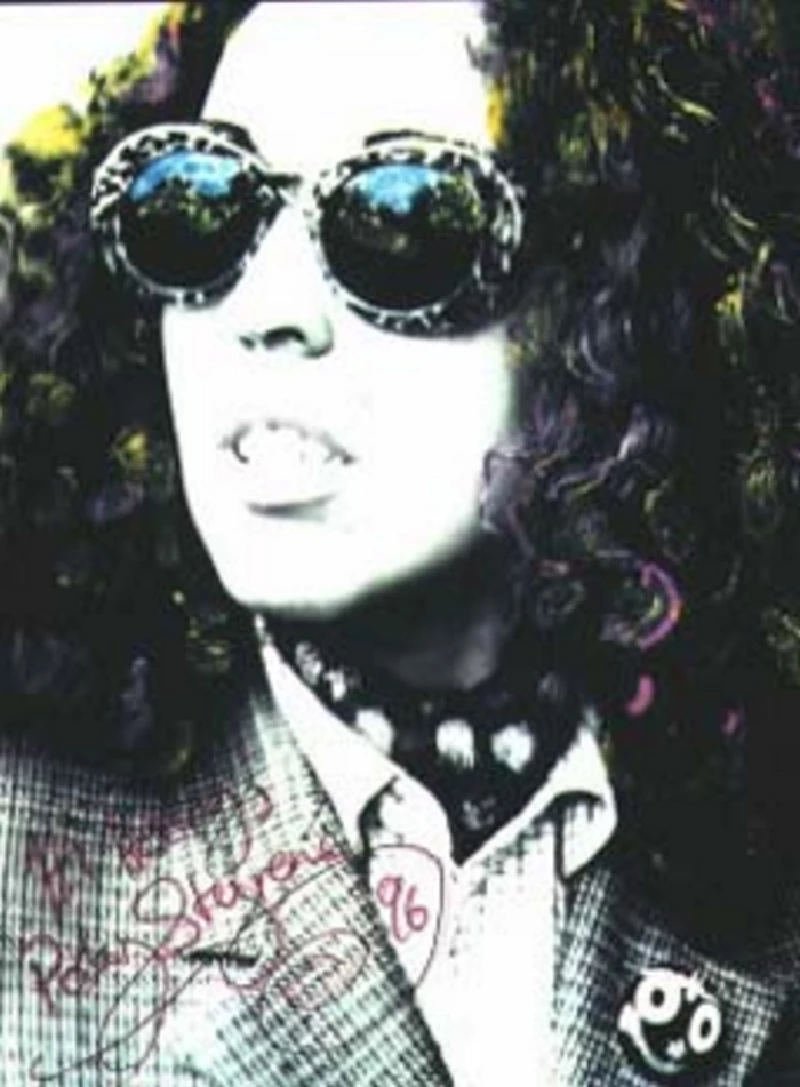
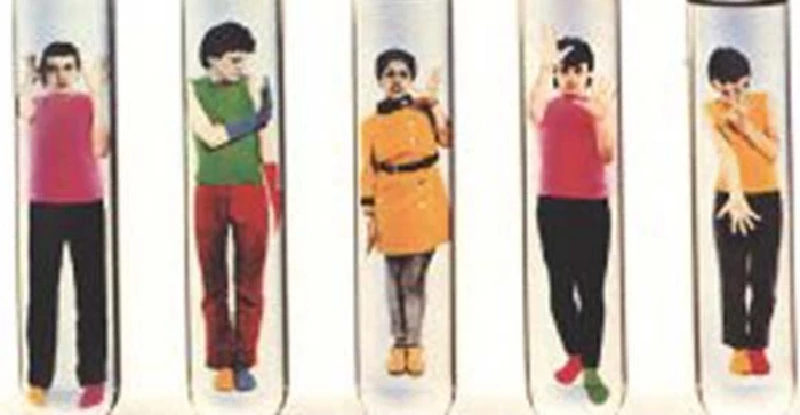
Visitor Comments:- |
| 339 Posted By: River Reis , Denmark on 10 Aug 2010 |
|
Thank you so much for posting this article on Poly Styrene. I am Polys age and first heard of her, in 1979, when I first arrived Manhattan, NYC, just when the whole Punk scene was emering in Manhattan. Poly was one of my favorite girl icons back then. SHe had talent, she is smart, she is mature for her age back then, great voice, daring and excepts the changes in her life. She experiences life...My Friend Gina Franklyn who was owner of Manic panic in St. Marks Place in Manhattan, back in 1979 along with Tisch and Snooky, was british and met with Poly Styrene and was proud that Poly was british and Gina felt as though Poly was a good representive of Ginas british roots. I mean I totally understand this. Its great to know Poly is doing great with her life, still active and creative in her own right and hasnt become bitter,or boring and hateful about her previous fame, like some mgiht do. I hope you interview her again and I would love to see some recent photos of her 2010. Thanks again for posting this, it brings back great memories for me.
|
interviews |
|
Interview (2024) |
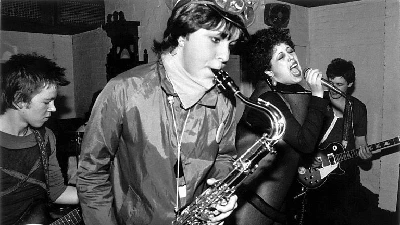
|
| Andrew Twambley speaks to Paul Dean, the bassist with iconic punk act X-Ray Spex about the vinyl reissue of their lost second album, 'Conscious Consumer'. |
| Interview with Poly Styrene Part 3 (2005) |
| Interview with Poly Styrene Part 2 (2005) |
reviews |
|
Live @ The Roundhouse London 2008 (2009) |
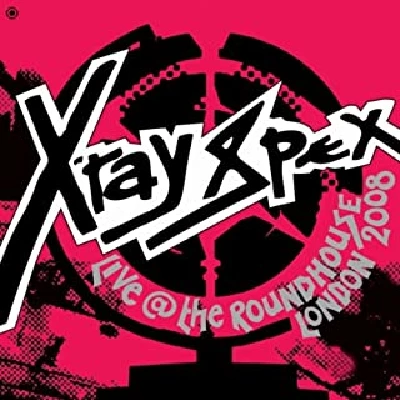
|
| Spirited live CD/DVD recording of first gig in eighteen years from influential 70's punk band X-Ray Spex |
most viewed articles
current edition
Carl Ewens - David Bowie 1964 to 1982 On Track: Every Album, Every SongArmory Show - Interview with Richard Jobson
Colin Blunstone - Thalia Hall, Chicago, 16/7/2025
John McKay - Interview
Visor Fest - Valencia, Spain, 26/9/2025...27/9/2025
Bathers - Photoscapes 1
Billie Eilish - O2 Arena, London, 10/7/2025
Loft - Interview
Robert Forster - Interview
Sir Tim Rice - Interview
previous editions
Heavenly - P.U.N.K. Girl EPManic Street Preachers - (Gig of a Lifetime) Millennium Stadium, Cardiff, December 1999
Beautiful South - Ten Songs That Made Me Love...
Oasis - Oasis, Earl's Court, London, 1995
Prolapse - Interview
Boomtown Rats - Ten Songs That Made Me Love....
Trudie Myerscough-Harris - Interview
Peter Perrett - In Dreams Begin Responsibilities Interview Part One
Coldplay - Wembley Arena. London, 16/8/2022
Pixies - Ten Songs That Made Me Love...
most viewed reviews
current edition
Davey Woodward - Mumbo in the JumboAmy Macdonald - Is This What You've Been Waiting For?
Sick Man of Europe - The Sick Man of Europe
Phew, Erika Kobayashi,, Dieter Moebius - Radium Girls
Alice Cooper - The Revenge of Alice Cooper
Lucy Spraggan - Other Sides of the Moon
Bush - I Beat Loneliness
Suzanne Vega - Flying With Angels
Blueboy - 2
Cynthia Erivo - I Forgive You
Pennyblackmusic Regular Contributors
Adrian Janes
Amanda J. Window
Andrew Twambley
Anthony Dhanendran
Benjamin Howarth
Cila Warncke
Daniel Cressey
Darren Aston
Dastardly
Dave Goodwin
Denzil Watson
Dominic B. Simpson
Eoghan Lyng
Fiona Hutchings
Harry Sherriff
Helen Tipping
Jamie Rowland
John Clarkson
Julie Cruickshank
Kimberly Bright
Lisa Torem
Maarten Schiethart